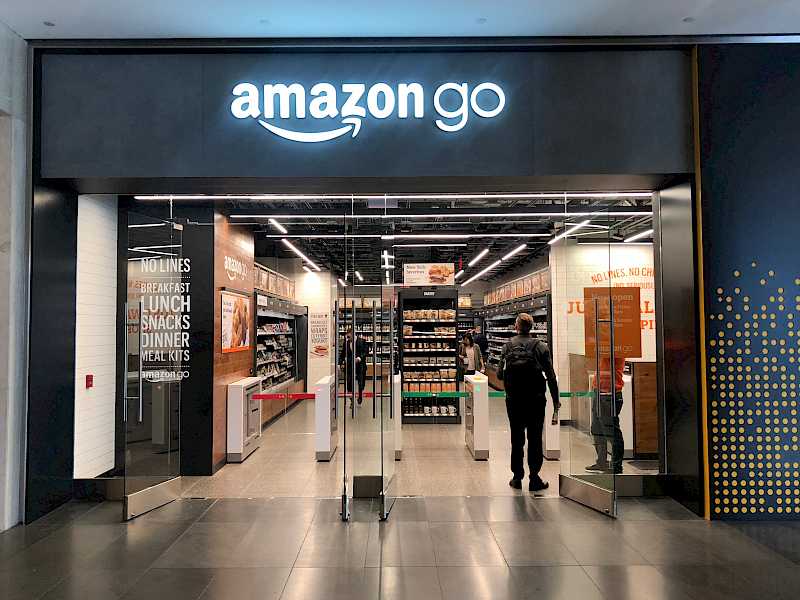I went shoplifting last week and no-one arrested me or even took a blind bit of notice. Not since I was eight and nicked a few penny chews from the local corner shop, have I done this. It's an odd thing to do, especially when invited to do so by one of the biggest retailers in the world. No, I've not taken up a career as a store security consultant, I've just visited the Amazon Go store in New York.
What is Amazon Go? It's the new cashless, staffless, self-service, no-checkout experience store. Use the barcode on your Amazon Go app to open the barrier, just like entering airport security and walk in. Pick your goods off the shelf and walk out. It's as simple as that. There's no swiping your card, no chip and pin terminal and no one to stop you at the door. It's a clever system that knows exactly what you've taken off the shelf, even if you change your mind and swap the Coke for a Pepsi.
It is an odd experience not paying for things, but also something of a liberating one. Yes, Apple have had something similar with their Apple store app where you can self-scan products using the camera on your phone and then leave the physical store with your goods, but the Amazon experience takes it to the next level. The system is so slick that you don't have to use the app again after you've entered the store. And I guess they could even just use a proximity detection system based on Bluetooth or GPS technology, so you don't even have to scan in as the next stage. But even in its current guise it's nothing short of a revolution in retailing.
There are around a dozen Amazon Go stores in the US and rumours of one opening in London. At the moment they are limited to convenience products, such as sandwiches, drinks, cans of food and kitchen essentials. But it's bound to expand. It's clearly an experiment right now, but how long before you can buy shoes, phones, laptops, TVs, clothes etc. in exactly the same way?
Is this the future of bricks and mortar retailing? There is an irony in Amazon, a pure-player online retailer opening a series of physical stores. And that on top of the Amazon Book stores that opened recently – an even bigger irony given that Amazon is largely responsible for the demise of the high street book shop!
But from a broader retail perspective, it's a very interesting development. We've long pondered the question of whether the internet is killing the high street? Here we have an instance of the internet reinventing the high street, not abandoning it. I'm sure Amazon won't be the only company to go down this route - it's easy to imagine Apple, Google and maybe even Currys/PC World following suit.
Will we ever see anything like it in the hi-fi sector? Maybe, but the cost of implementing the technology will be immense. Perhaps some enterprising entrepreneur will launch a ready made package that can be rolled out to retailers from many different sectors - a kind of "off- the-peg" solution that can be adapted to work with hi-fi, cameras, clothing, perfumes, magazines and pretty well anything else you can buy in a shop.
Maybe it's going too far for the hi-fi industry as, after all, we like to interact with our customers and give them a personalised service.







